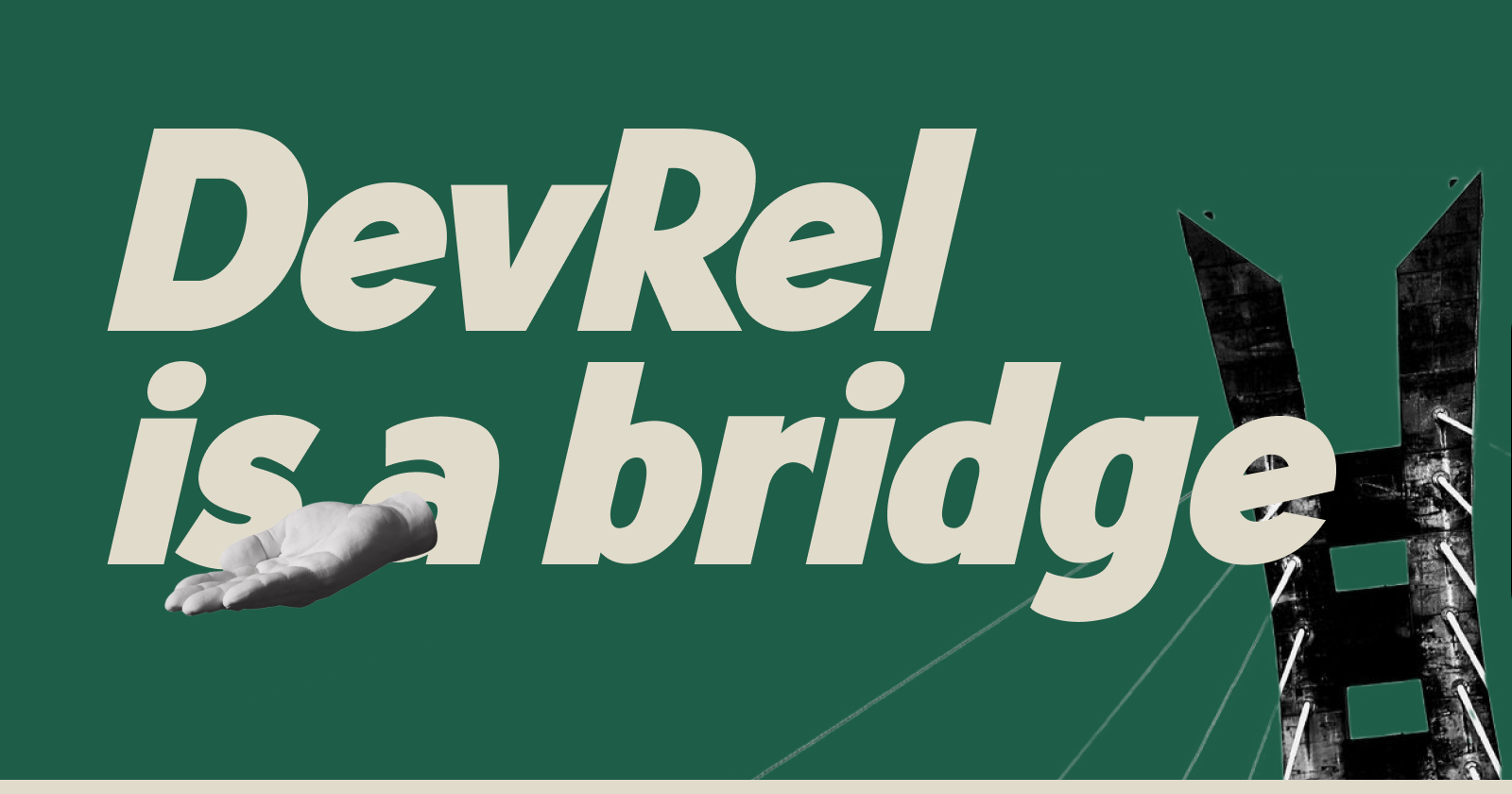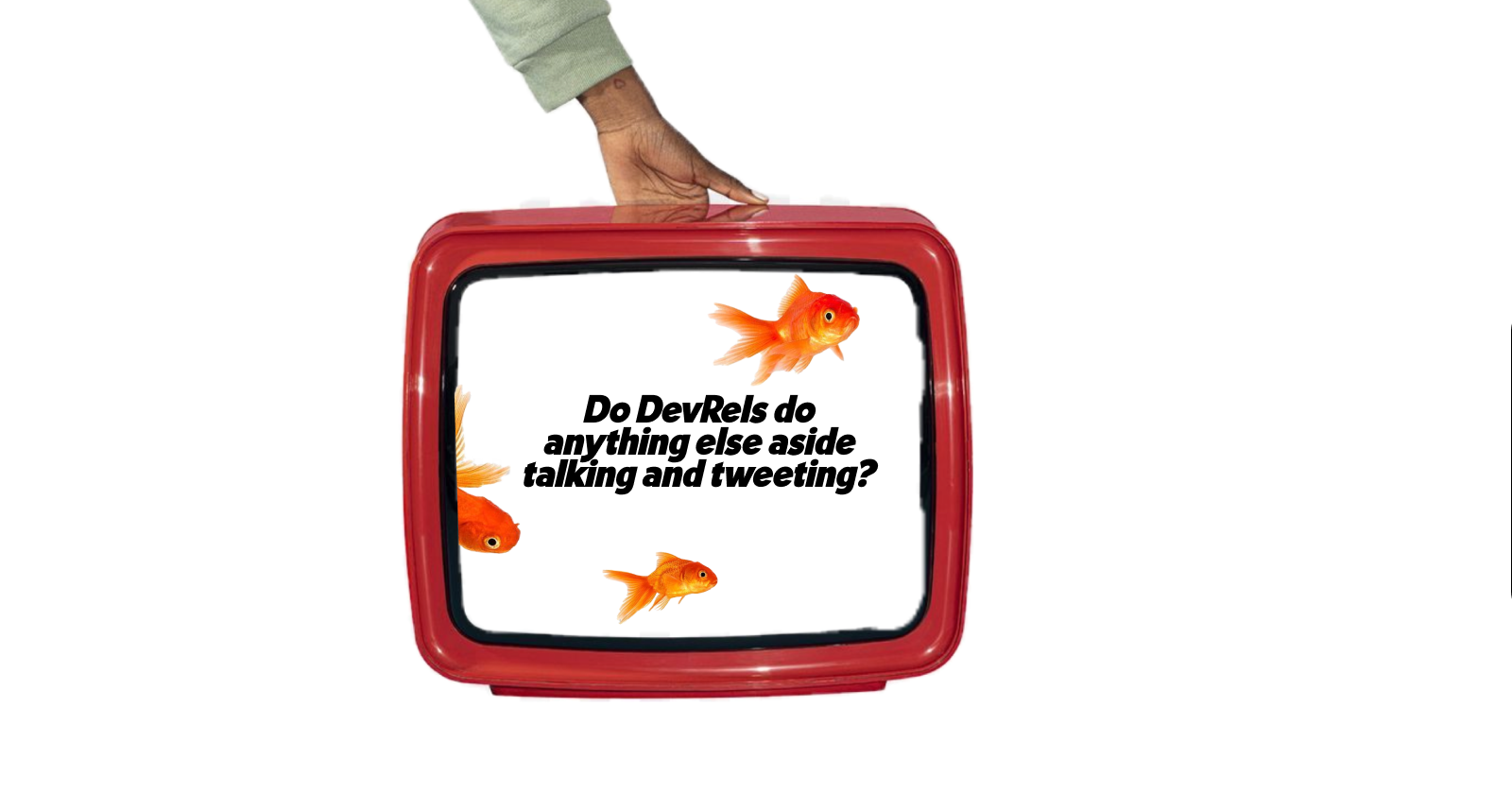Developer Relations is a bridge.
 Mercy Thaddeus
Mercy Thaddeus
When I first heard about Developer Relations (DevRel), I had no clue what it truly meant. As a frontend engineer working in the blockchain and AI sector, my focus was on building products, writing code, and occasionally contributing to white-papers and documentation for the teams I worked with.
I remember meeting a speaker who was introduced as a “developer advocate”. Subconsciously, I defined the role as just developers who built various projects and spoke at conferences. “Advocate” - sounded interesting, but I didn’t fully understand its scope. Over time, my perception evolved as I engaged more with communities. That’s when I realized—DevRel isn’t just about talking; it’s about enabling, supporting, and growing developers and their communities.
What is Developer Relations (DevRel) ?
DevRel serves as the bridge between developers and the broader community. The role has evolved significantly over time. Google formally launched its Developer Advocate program in 2009, and Twitter soon followed in formalizing DevRel functions. Historically, DevRel has grown from three core areas:
Documentation to Community – Initially, DevRel was primarily about writing documentation. Over time, it expanded into building and engaging with developer communities.
Marketing to Two-Way Communication – Instead of just promoting products, DevRel became a channel for listening to developers, gathering feedback, and influencing product development.
Technical Support to Strategic Function – What started as a way to assist developers in troubleshooting became a strategic initiative focused on improving the overall developer experience.
DevRel Now: The Key Areas
While Developer Advocates are the most visible aspect of DevRel, the field consists of multiple roles and functions:
Developer Advocacy – The most outward-facing role. Advocates create content, speak at conferences, engage with communities, and provide feedback to internal teams.
Developer Experience – Focuses on API design consultation, SDK development, documentation strategy, and optimizing onboarding flows to make developers more productive.
Developer Marketing – Works on acquisition, engagement, and retention strategies for developers using a product.
Community Management – Builds and nurtures developer communities, fostering engagement and collaboration.
Developer Education – Creates structured learning paths, workshops, and resources to help developers learn effectively.
Ecosystem Integration – Encourages third-party developers to build integrations, fostering a thriving developer ecosystem.
Other Aspects of DevRel
Internal DevRel – Helping internal developers use tools more effectively within an organization.
Open Source Advocacy – Engaging with open-source communities and driving adoption.
Build-in-Public Culture – Encouraging transparency by sharing development processes and engaging with the community throughout.
In startups, DevRel professionals often wear multiple hats, working closely with engineering, marketing, product, and community teams. It’s a cross-functional role that requires balancing technical know-how with communication and strategy.

Why DevRels Are Important
DevRels make software more accessible. They ensure that developers can seamlessly use tools, get the support they need, and contribute meaningfully to the ecosystem.
As long as products are being built and APIs are being developed, DevRel will continue to be essential. It’s the function that makes technology accessible, engaging, and developer-friendly. Whether you’re a company looking to grow adoption or a developer trying to find the right tools, DevRel plays a crucial role in making the experience smoother and more productive.
My Goal at the End of DxMentorship

I’m a mentee in Cohort 4 of DxMentorship. My goal is to learn the foundations of Developer Relations and become a Developer Advocate in the AI industry. I want to build a strong understanding of advocacy, community engagement, and how to educate developers. I’m holding myself committed to this.
DevRel is more than just a job—it’s a mission to make technology accessible, engaging, and empowering for developers worldwide.
Subscribe to my newsletter
Read articles from Mercy Thaddeus directly inside your inbox. Subscribe to the newsletter, and don't miss out.
Written by

Mercy Thaddeus
Mercy Thaddeus
I am a Frontend Developer and Technical writer passionate about solving problems with tech and helping others solve theirs.